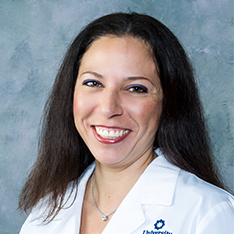Alzheimer’s disease is a type of dementia that progressively gets worse over time. As it progresses, a person with Alzheimer’s will have more trouble remembering things, getting dressed and caring for themselves. Eventually, some people with Alzheimer’s will not recognize their loved ones.
Alzheimer’s disease usually affects people over the age of 65. However, about one-fifth of the population develops early onset Alzheimer’s, which can develop as early as 40 years of age.
Dr. Katherine Whiteley from University Health spoke with SA Live about caring for someone with Alzheimer’s.
What are the signs of Alzheimer’s?
- Impaired memory
- Compromised multitasking, less organized, inability to complete tasks
- Sleep disturbances
- Trouble driving to familiar places
- Reacting inappropriately and having emotional outbursts
- Difficulty with communication and speech
- Difficulty with motor tasks like dressing and using utensils to eat
Are there other things that could be going on that may look like Alzheimer’s?
“Many factors can contribute to confusion and other symptoms that look like Alzheimer’s,” Dr. Whiteley said. “It may be another kind of dementia, or it could be some external factor.” These could be:
- Medication problems
- Dehydration
- Infection
- Vascular disease
- Delirium
- Depression
What can I do if I have a parent, relative or friend who is showing these signs?
The best thing is to have the patient see their doctor for a full evaluation. Blood work can rule out other potential causes. We can do memory testing, screen for depression, check for diabetes and high blood pressure, look for stroke signs and review family history.
Caregivers need to understand the burden of taking care of a person with Alzheimer’s. People with dementia need a daily routine, supervision, hygiene assistance and good sleep hygiene.
As a caregiver, you may help with these tasks:
- Grocery shopping and cooking
- Bathing and dressing that person
- Driving them to appointments
- Ensuring they take their prescribed medications
- Planning for long-term care (like a nursing home) when necessary
University Health is an Age-Friendly Health System
University Hospital was recognized as an Age-Friendly Health System by the Institute for Healthcare Improvement.
University Health earned this award by aligning our patient care with the Institute's four Ms:
- What Matters: Tailoring our care to each individual’s preferences and goals, including end-of-life care
- Medication: Using age-friendly medication that does not interfere with the older adult’s preferences, mobility or mental acuity
- Mentation: Identifying, preventing and treating signs of mental decline, like dementia and depression
- Mobility: Helping older adults stay mobile and keep doing what matters
At University Health, we are proud to provide evidence-based, compassionate care for adults of all ages.





